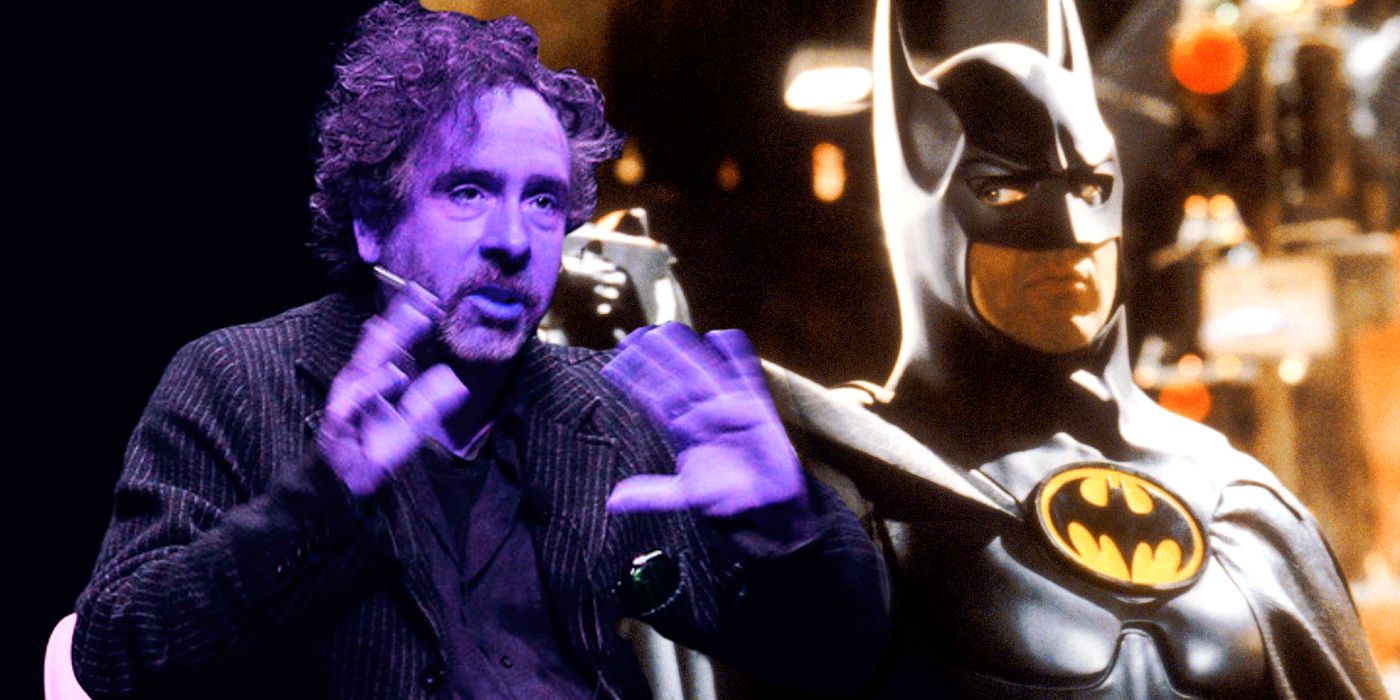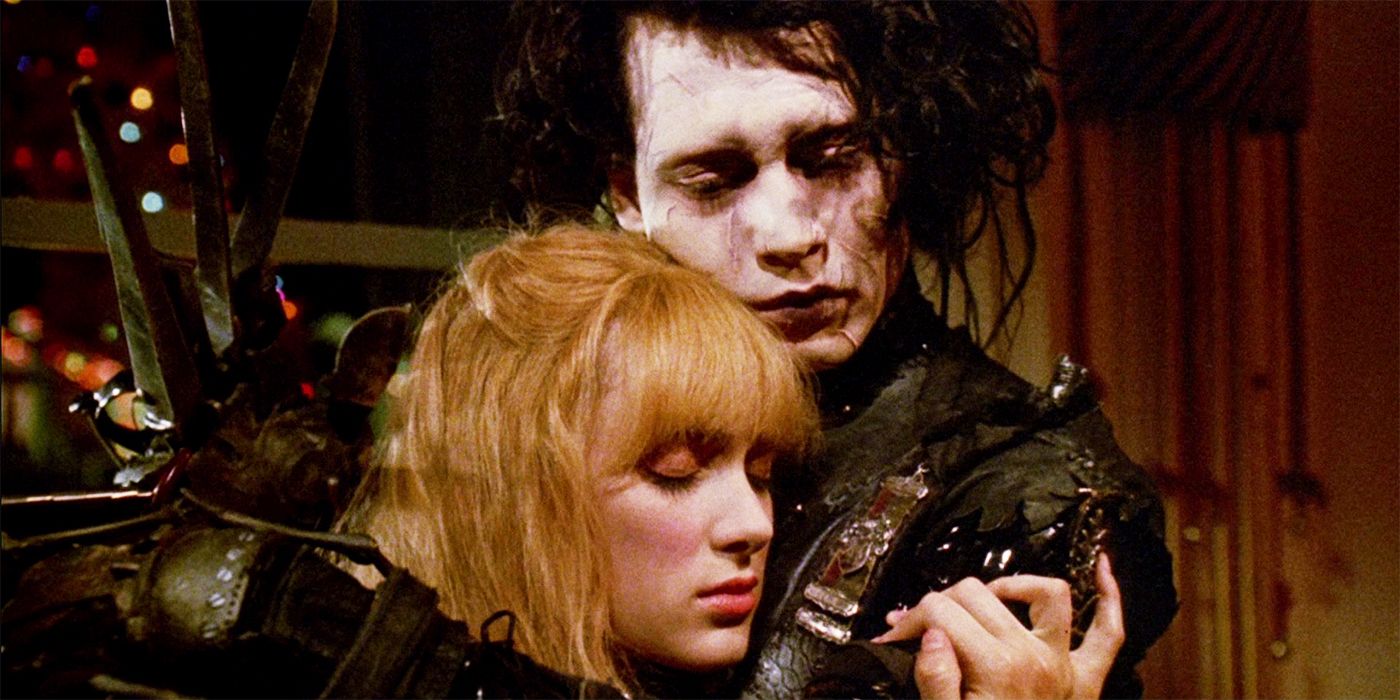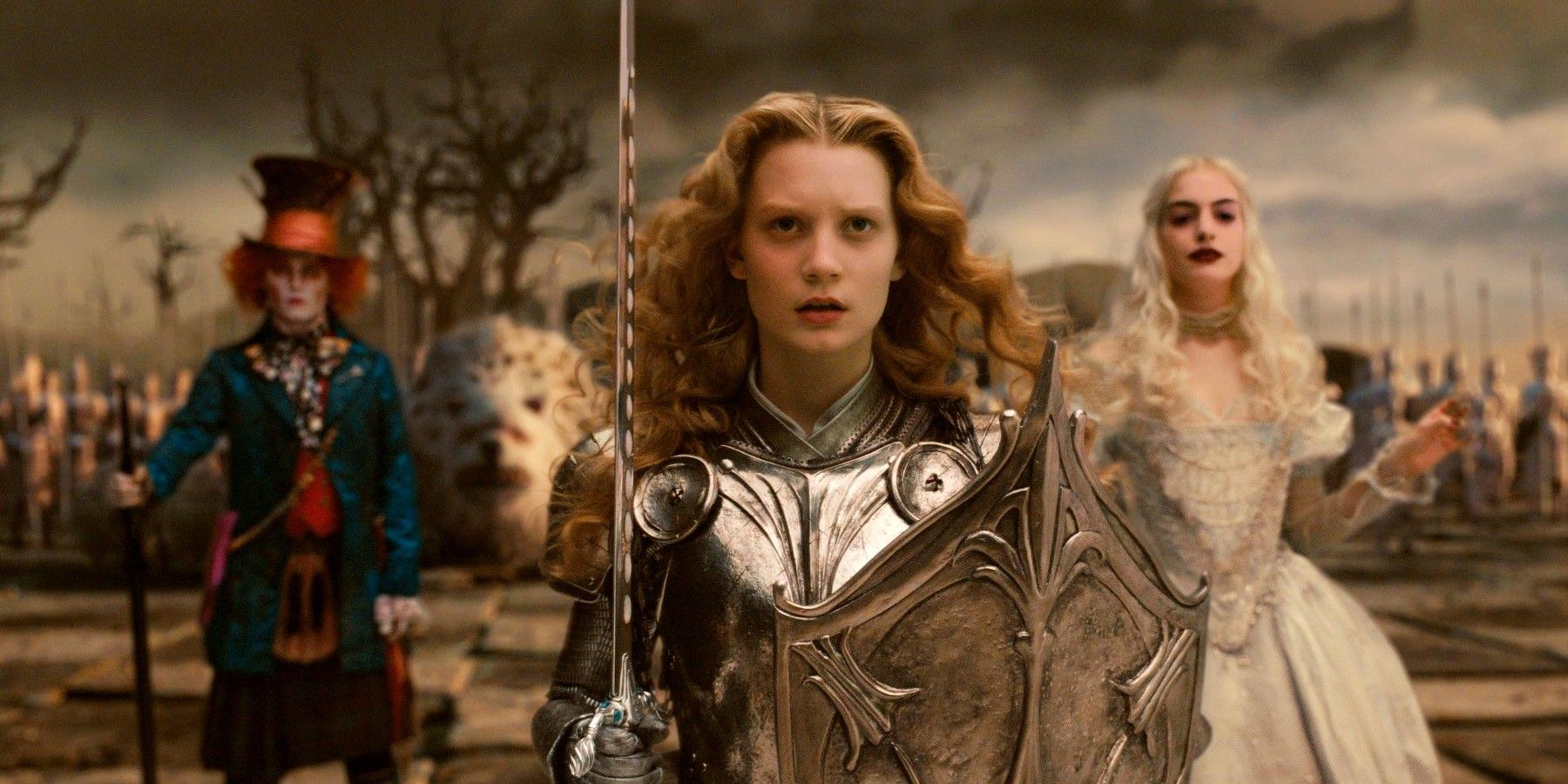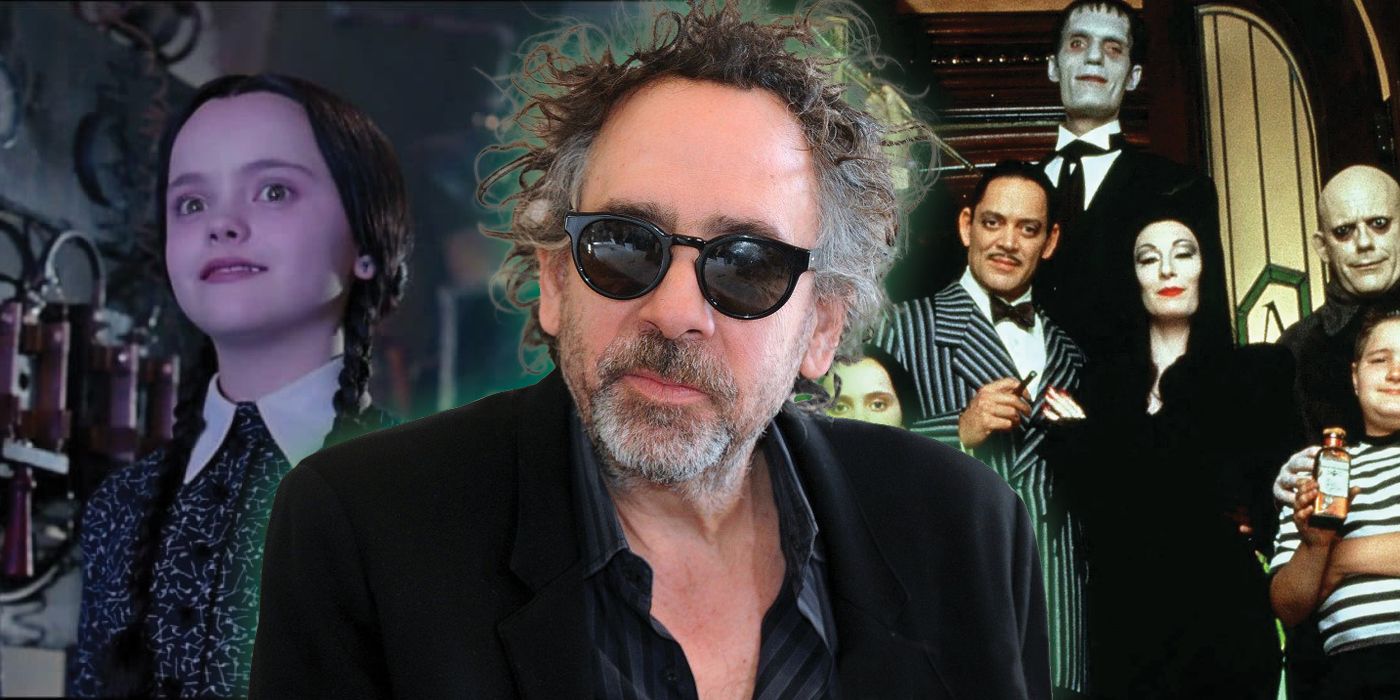Despite boasting an iconic signature gothic fantasy aesthetic, mixed recent returns at the box office has many fans wondering exactly what happened to Tim Burton movies. While there is absolutely no doubt that Burton’s vision led to unique, wonderful realities within the ambit of cinema, there has been a noticeable shift in the way he is perceived, especially in recent times. Audiences and critics alike have felt that the original magic of Tim Burton films have dissipated over the years, unable to charm audiences and put them under a spell the way they used to. Understandably, given his popularity as a filmmaker, this trend is perplexing.
Burton’s gift for the fantasy comedy genre was actualized in 1988’s Beetlejuice, a classic in its own right, which was described as a film that was brilliantly bizarre and deliciously manic. These qualities remained a staple in several Burton films, prime examples being Edward Scissorhands, The Nightmare Before Christmas, Ed Wood, and many more. However, in the past decade, these successes have given way to more misfires than hits, despite many modern Tim Burton movies seeming to be perfect for the director's style. For instance, while Alice in Wonderland had the quintessential setup for a Burton-esque extravaganza in terms of style and narrative, the film felt more like a bloated, CGI-laden spectacle, although it was Burton’s highest-grossing film of all time.
A pattern of decline can be gleaned from the reception of the live-adaptation of Dumbo, which was criticized for its uneven tone and lack of genuine emotional stakes. Critical reception aside, there is also a pertinent problem in every Burton film from a diversity point of view, as the cast in all of his films is overwhelmingly white, leaving no space for POC characters. Here’s a deep dive into just what happened to Tim Burton movies, as well as all the possible reasons why there has been a decline in the quality, and why, if at all, critics have turned against him.
How The Response To (& Quality Of) Tim Burton's Movies Has Changed
The period between the late 1980s to early 1990s can be deemed as the golden period for Burton, as he created a wide array of films that were fresh, original, and expertly crafted in their own ways. Burton’s Beetlejuice and Edward Scissorhands became prime examples of his ability to craft narratives that truly embraced the beautiful and the bizarre, whilst also being drenched in pathos, particularly in the case in Edward Scissorhands. Unfortunately, these two films are the only Tim Burton originals so far, as every other offering has been an adaptation, which is not necessarily a discredit for a director, given the complexity of translating one medium into another. Directors like Stanley Kubrick have weaved their oeuvre with masterful adaptations of iconic books, novellas, and the like, which Buton has also been able to succeed in, to a considerable degree.
1989 harkened the era of Tim Burton’s big-budget offerings, with the release of Batman wherein Michael Keaton starred as the caped crusader and Jack Nicholson belted an unforgettable performance as the Joker. While some aspects of the film were criticized, it still received positive reviews for its overarching unhinged quality that played well into the fabric of its central characters, the tone of which was inspired by The Killing Joke. Then on, Burton, while choosing not to direct The Nightmare Before Christmas, conceived the core idea, which was praised for its refreshing originality and imaginative excellence. This streak of ingenuity continued with Ed Wood and Sleepy Hollow, two films that handle their characters with measured nuance, with the latter being praised for its creepy, gothic atmosphere and stunning visuals.
The quality of Burton’s films underwent a considerable change with Mars Attacks!, which was a hybrid of 1950s science fiction and 1970s all-star disaster films. The film was heavily criticized for its overtly cheesy undertone that produced no laughs and superficial treatment of its source material. Planet of the Apes, too, turned out to be an absolute disaster, as it was deemed greatly inferior to the original and was heavily criticized for its ambiguous ending. However, Burton’s post 2000s era was not just a series of mixed bags, as he belted out commendable films such as Big Fish and Sweeney Todd, wherein the former received four Golden Globe nominations for its fascinating and enchanting premise. The true dip in quality, or rather, an unfaithfulness to Burton’s personal style, commenced with Alice in Wonderland, beginning the trend of bloated Burton movies with more style than substance, minus the charm inherent in his directorial style.
Why Tim Burton's 2010 Movies Have Been Worse
Buron’s post-2000s era has been a mixed bag, which is not necessarily a terrible predicament, as Charlie and the Chocolate Factory and Corpse Bride are fairly good additions to Burton’s oeuvre. The presence of Johnny Depp and Helena Bonham Carter in the majority of his films have worked in his favor in most cases, but the repeated use of this preference might have lost its charm over the course of time, as it is hackneyed to witness the same actors play similar characters in rehashed concepts. A prime example is 2012’s Dark Shadows, which performed poorly at the box office and garnered mixed to negative reviews from critics, the key reason being the tired, lost appeal of the Burton-Depp collaboration. The integral essence that made Burton’s film special was visibly missing from Dark Shadows, which was also the case with Alice in Wonderland and Dumbo, which were superficial CGI offerings missing the director’s bizarre charm.
This is not to say that Tim Burton movies since 2000 have been a total failure. For instance, Burton’s adaptation of Frankenweenie (based on his original 1984 live-action short of the same name) is a prime example of the director's continuing skill behind the camera. While his earlier version was shelved at the time, Burton made a feature-length stop-motion animated remake in 2012, which tells a beautiful, heartfelt tale that is both dark and dazzling. This highlights how, when a project is close to Burton's heart, he can still deliver.
Keeping this in mind, it is clear that big-budget productions do not really gel well with Burton’s innate tone and style, which also needs to undergo a revamp to appeal to present audiences to avoid rehash and repetition. Another example of a big-budget production that did not work well despite containing elements of Burton’s brilliant weirdness is Batman Returns, which divided audiences and critics due to its bleak portrayal of Batman and Penguin, although it did extremely well in the box office. The same can be said about 2016’s Miss Peregrine's Home for Peculiar Children, which was criticized for its lack of emotion and anti-climatic narrative, especially when compared to his earlier work.
What's Tim Burton Doing Next (& What He Needs To Put Right)
Burton is set to direct and produce Wednesday, a coming-of-age Netflix series based on the titular character from The Addams Family. Jenna Ortega and Catherine Zeta-Jones are expected to assume the respective roles of Wednesday and Morticia Addams, while the narrative is expected to focus on Wednesday’s formative years at Nevermore Academy. Wednesday is the perfect comeback for Burton as an auteur, as the premise contains all the elements he specializes in and is a master of, be it creating tense, gothic atmospheres interspersed with witty humor or the portrayal of the supernatural in a beautifully bizarre manner. As Burton’s first foray into directing television, Wednesday can potentially allow him more artistic freedom, allowing him to bloom without being restricted by studio directives and expectations.
As Burton finally embraces a more diverse cast, it will be the perfect opportunity for him to demonstrate his ability to understand the nuances of the human condition, creating a series that is sharp, stunning, and full of heart. The trope of the gothic within American suburbia can be explored here, which also happens to be his innate specialty. While no other projects are currently associated with him, Burton can turn the tide in his favor by relying less upon preferred actors, gray-tinted color palettes, and the repetition of hackneyed gothic horror tropes. Tim Burton may still surprise audiences by creating a spectacle rife with his staple fantastical dreamscapes and genuine emotional pull, all the while adding fresh, unexpected elements that entwine beautifully with his core vision.




